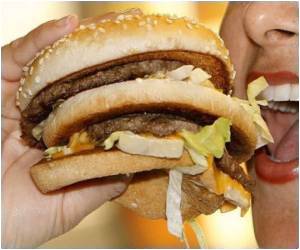These days it is very difficult to know the nutritional value of foods.

Ingestion of trans fat is a known public health concern. Top national health organizations, such as the U.S. Department of Health and Human Services and American Heart Association, suggest trans fats be ingested in limited quantities. However, current FDA labeling protocol and policy prevents the public from accessing the true amount of trans fat contained in their food products.
Current law requires that fat content of greater than five grams be listed in one gram increments, less than five grams be listed in .5 gram increments, and lower than .5 grams as containing zero grams of fat. Meaning, if a product has .49 grams of trans fat, the label can list the trans fat content as zero, thus masking a significant amount of trans fat that can exceed recommended limits and potentially lead to various adverse health effects.
Trans fat consumption has been linked to increased risk of coronary artery disease, diabetes, and sudden cardiac death. Because the daily recommended amount of trans fat from processed foods is only 1.11 grams, one would only need to consume a few deceptively labeled trans fat foods to exceed the healthy recommended intake. As few as three deceptively labeled trans fat items would exceed the healthy recommended intake; for example, consuming three serving sizes each with .49 grams of trans fat, totaling 1.47 grams. Despite what seems to be a small amount of trans fat to ingest, research shows that increasing daily trans fat consumption from .9% to 2.1%, or from two grams to 4.67 grams, will increase one's risk of cardiovascular disease by 30%.
In an effort to adhere to its mission and responsibility in "helping the public get the accurate, science-based information they need to use medicines and foods to maintain and improve their health," Brandt recommends the FDA revise its labeling protocol in order to prevent misleading the public about the amount of trans fat they are consuming. He recommends the FDA require food labels to report trans fat content in smaller increments, enabling consumers to recognize significant levels of trans fat in food products and allow one to properly manage their consumption. The suggested change will increase awareness of accurate food trans fat content, empower informed food choices, and improve public health outcomes.
Advertisement














